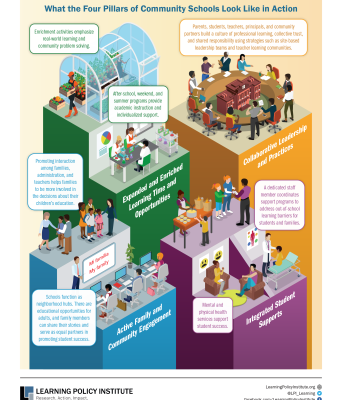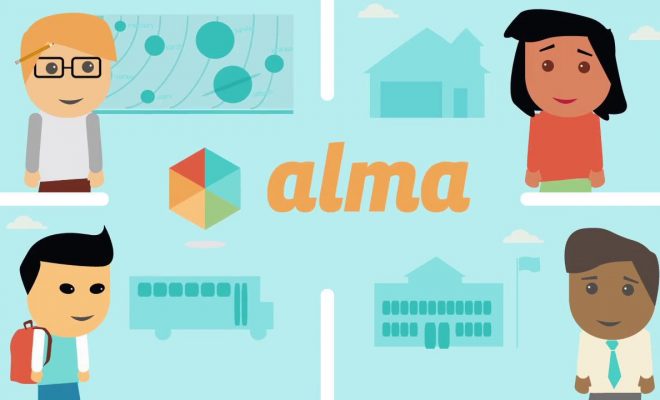The Role of Public Schools in the Advancement of the Communities

Public schools can play a significant role in the general improvement of their respective communities, and can operate as a major platform for enhancing child welfare in the community. Social reformers, politicians, and educational leaders have utilized various initiatives in the past to strengthen the relationship between schools and communities to achieve the common purpose of improving child welfare, and learning conditions for all children.
These initiatives suffer obstructions similar to those experienced by schools when they are focused on the work of educating. Detrimental poverty, racial and ethnic differences, socioeconomic differences, inactive families, low or no parental involvement, and insufficient political willingness and support for improvement all impact the efforts to advance the welfare of children. Any of these factors may obstruct the learning process of a child, and also may make it difficult to enhance the child’s overall well-being.
Historically, schools have played a significant role in helping communities evaluate issues concerning child welfare and eliminating situations that impede children’s progress. During the Great Migration of 1880–1924, a huge number of impoverished children moved into the schools of American cities. The majority of immigrants were poor and undereducated.
Social reformers and policy makers pressured public schools to work toward improving children’s lives. Many schools devoted themselves not only to educating poor children, but also to providing them with proper nutrition and other amenities required for healthy living. Teachers devoted their time to teaching English to immigrant students. Many schools offered non-academic services, including school nurses, gyms, playgrounds, and mid-time meals or lunches for poor students.
Some schools also started offering night classes for parents to help them learn English and other important parental skills that could assist them in caring for their children. Many schools encouraged teachers to improve school-parental ties by visiting students’ homes and instructing parents on how to offer a better learning environment for children at home. However, such initiatives faced a certain degree of opposition from parents who were not ready to leave their ethnic and racial identities.
A major hurdle was the economic impracticability of sustaining such child welfare activities. Most of these initiatives were criticized as “socialistic,” but many children enjoyed the benefits of programs intended to improve the overall situations of children and their families. Children not only experienced better living conditions; they also gained many opportunities to rise out of poverty. As a result, more immigrant children started coming to school regularly.
Ever-increasing fiscal burdens on schools created by child well-being initiatives caused political opposition and social criticism. In order to reduce costs, many state governments withdrew funding for social services offered by public schools. As a result, the upsurge of underprivileged children in the late 1980s and early 1990s was met with reduced and nonexistent services emanating from schools.
The depressed socioeconomic conditions of underprivileged families were responsible for undermining the learning process and academic achievement of many children. Teachers again tried to find innovative ways to help students and tried to support their local public school systems by assisting in improving social conditions and creating better learning opportunities.
Social reformers began making better use of schools to improve socioeconomic situations in different communities. Many full-service school programs were introduced to bolster the relationship between schools and communities, with the main objective to improve situations and provide better environments for children, their parents, and the community overall.
Most of these experimental policies for child welfare and social reform suggested that the efficiency of school-community relationships and their positive impact could be maximized by increasing parental involvement in schools. By encouraging parents to take an active role in the education system, policymakers tried to improve school services by making schools more accessible to parents. This also helped schools improve their relationship with parents, and helped them improve students’ performance.
Many researchers set out to substantiate analytically that parental involvement strengthened the school-community relationship by improving social conditions of students. Educational researchers suggested that parental involvement could positively improve the academic achievement of children. Studies revealed that those students whose parents were involved with their learning process were performing better, attended classes more regularly, and scored higher on school examinations than students who were lacking parental support and involvement in their learning.
Studies also suggested that low-performing schools could help failing students by trying to engage parents in the educational process of students. Researchers confirmed that schools could help students who have learning disabilities, or who belong to families from low socioeconomic backgrounds by interacting with and training their parents how to help these students with their learning and schooling processes.
In order to increase parental involvement, many schools use strategies such as inviting parents for open meetings with other parents, arranging social programs, asking parents to volunteer during school social and sports events, issuing regular newsletters, connecting with parents through phone calls, and arranging for parent and teacher conferences. These strategies may seem manipulative, and often fail to involve parents in the educational system. Still, school administrators and teachers may use these types of initiatives to increase parental involvement, while excluding parents from serious decision-making processes.
Often school administrations do not allow parents to raise their concerns about ineffective administrative policies, substandard teaching, and faulty grading systems. Regulated initiatives by schools to involve parents in the learning process of their kids often remain lopsided and ineffective because such activities restrict parents from interacting with the education system in a meaningful way.
School administrators and teachers often exploit regular parent-school collaboration methods by providing limited and biased information. They rely on parents being unquestioning and passive, and believe that only education professionals can truly improve student learning. Often they ignore the rights and abilities of parents to make decisions, as well as the ability of parents to contribute information and suggestions for improving the schooling process. Additionally, some administrators are unwilling to make accommodations for parents unable to take part in regular parent-teacher meetings and similar activities because of their work schedules.
Many schools do not engage in unprincipled measures to restrict parental involvement. Most genuinely value the input parents potentially provide. In order to improve parent-teacher collaboration, many have experimented with innovative ideas and have open door policies which allow individuals to observe school processes. Parents can visit at any time to scrutinize teaching methods, and how their children perform within the school structure. Such initiatives demand a flexible structural bureaucracy that allows parents to play a meaningful part in the decision-making process.





